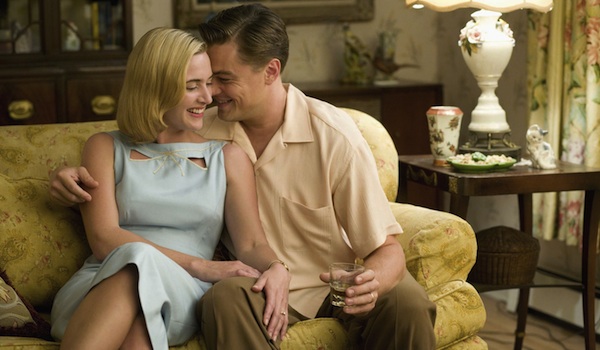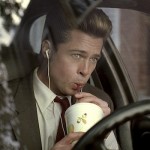Revolutionary Road Review
Revolutionary Road is one of the most literary adaptations I’ve seen in some time. By that, I mean the film looks, sounds, and is structured as if it was directed by the source’s author Richard Yates, rather than Sam Mendes. That’s not a bad thing, per se. In fact, I think it serves this material well. I really like the way Mendes (not Yates) structures the film, and I think its talky nature makes for some very compelling and memorable discussions (or shout fests, I guess). Revolutionary Road is far from pleasant cinema, and definitely not what most were expecting from a big-screen reunion of Titanic‘s star-crossed lovers. But, bottom line: This is an excellent film.
Like many couples during the 1950s, Frank and April Wheeler (Leonardo DiCaprio and Kate Winslet) are good actors. They aren’t actually actors, mind you (despite what April would like to believe), but they’re able to flawlessly maintain the guise of a happy couple while actually being anything but. These are two individuals who met each other at a party, got married on a whim, and moved to the suburbs in order to raise their two kids. Neither Frank nor April enjoys the white-picket-fences-style life, though, so when April suggests they make a change and move to Paris, their relationship is rejuvenated. But as circumstances change and make their current lifestyle seem more and more practical both Frank and April are forced to confront the possibility that their dreams of achieving something extraordinary may never come true.
Those with a low tolerance for arguing couples will not enjoy Revolutionary Road much at all. A great deal of the film is Frank and April screaming at each other, but their arguments aren’t in vain. Their disintegration represents something more: The idea that some people just aren’t destined for greatness, and the sooner one can accept that, the better. Frank can. He doesn’t mind playing house so much, as long as he’s permitted his midday trips to a hotel with the office secretary. April, however, can’t accept that, and worse, she blames Frank for the way things turned out. She’s not entirely wrong, but that attitude breeds big trouble.
Michael Shannon has a small, but very memorable role as a neighbor’s son, just returned from the mental institution. He conveys Mendes’ (and Yates’) point better than even Frank or April. Despite earning a Ph.D. in mathematics, he is driven crazy and virtually unable to speak to housewives and husbands without sarcasm or disdain. Shannon is electric on screen and was rightly rewarded with an Oscar nomination for his work.
Of course, the real stars are Leo and Kate, who despite being very close friends in real life, manage to convincingly portray characters who despise each other. Winslet won an Oscar in 2008’s The Reader, but in my opinion, she was rewarded for the wrong film. OK, I liked Anne Hathaway’s work in Rachel Getting Married more, but Winslet was a solid second on my imaginary ballot that year—just not for Stephen Daldry’s film. It’s Revolutionary Road that brings out the beloved actress’ best, and she’s matched all the way by the always-terrific DiCaprio.
Frankly, I find Sam Mendes a little overrated as a director, mainly because I think American Beauty is a really pretentious piece of work. But his direction of Revolutionary Road is outstanding. Everything in the film is atmospheric, perfectly encapsulating the image of 1950s suburbia. The camerawork is excellent, as is the set design and lighting. And Thomas Newman’s score helps ramp up the emotion without feeling intrusive or manipulative. Fault Revolutionary Road for being a downer, but there’s not much you can fault Mendes or the film for on a technical level.
As I’ve said, I know this film isn’t for everyone. It’s a pretty uncompromising look at a group of people trapped in mediocrity, despite their most desperate wishes to escape it. The acting is tremendous all around, and Sam Mendes manages to stir up thoughtfulness and emotion in equal measure. It’s not a film I tend to revisit that often because it’s such a tough watch. But I find something new worth cherishing every time I see it—the true mark of a great film.















